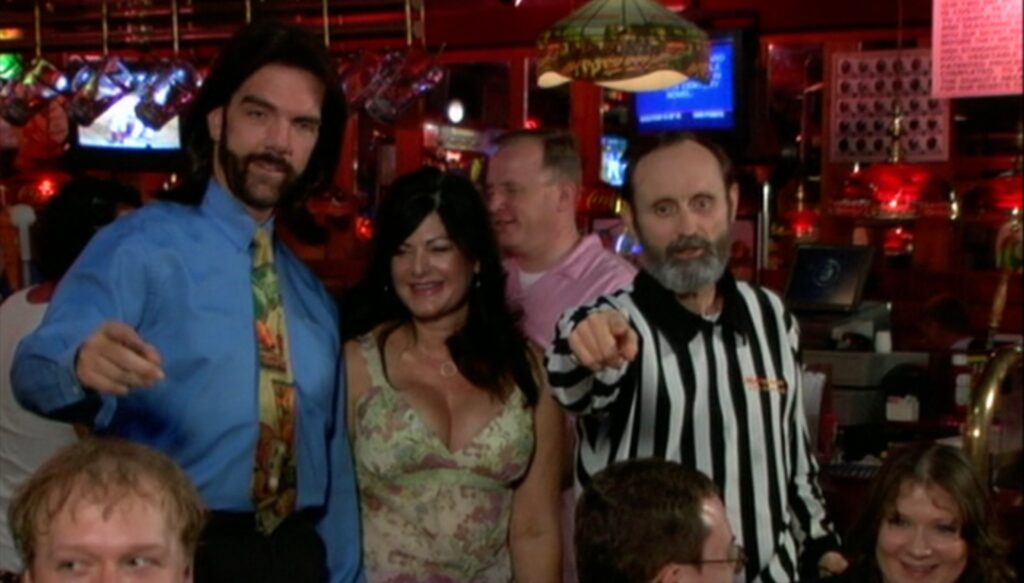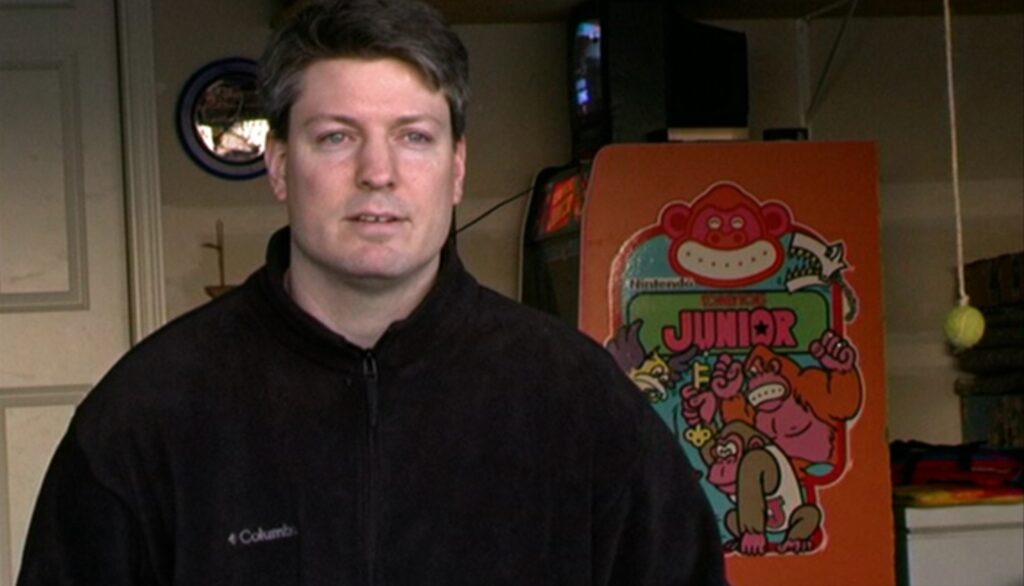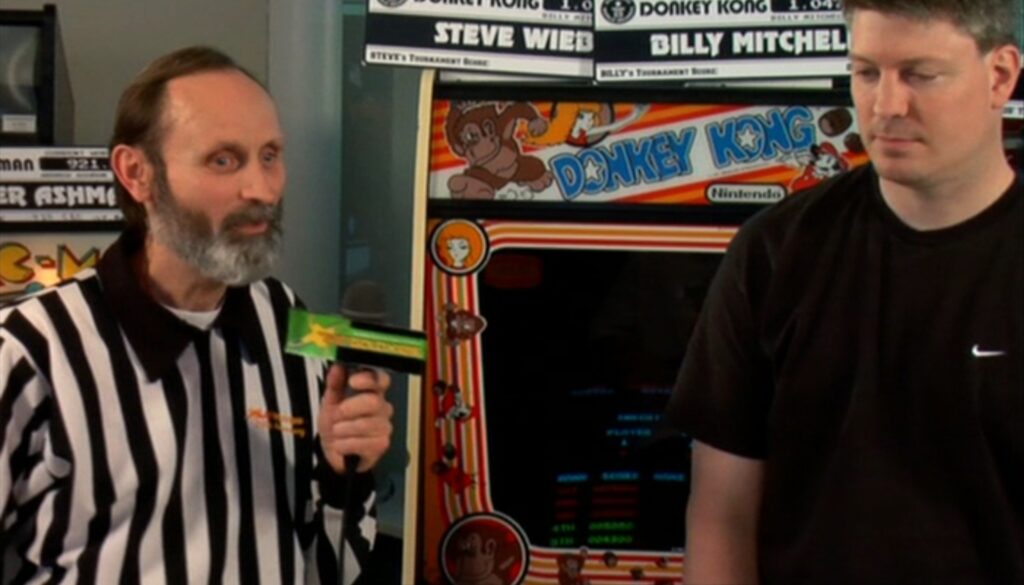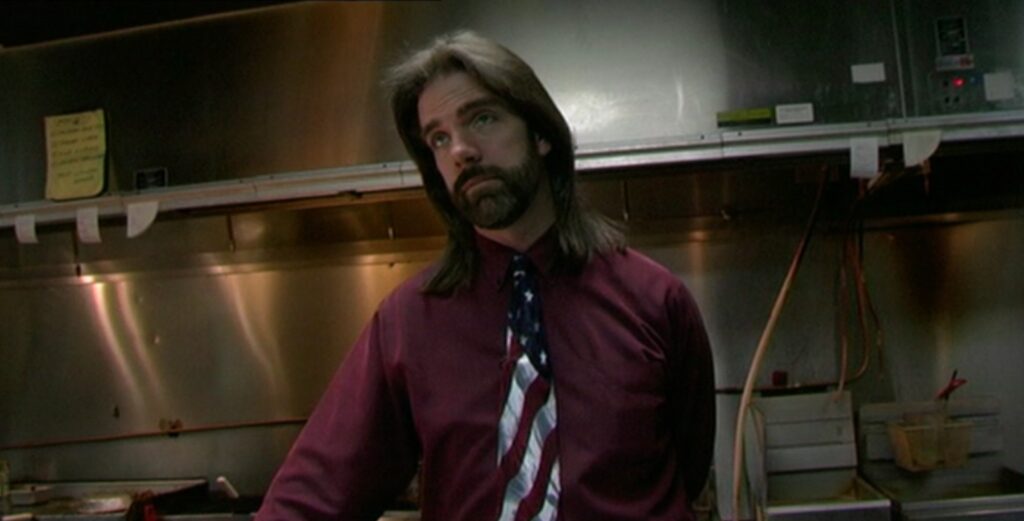
In April I wrote a post on the outcome of a lawsuit brought by Billy Mitchell against Karl Jobst, a resident of Brisbane in Queensland, Australia. In this I gave some background to Billy Mitchell including the 2007 documentary King of Kong: A Fistful of Quarters which brought him wider public attention. As stated in the post, he is undoubtedly a pioneer of competitive gaming and was particularly skilled at the arcade classics Donkey Kong and Pac-Man. This captured my interest for a number of reasons, not least because the case took place in the city where I reside and I was familiar with both personalities involved before it began.
This led me (and I’m sure many), to re-watching the documentary which is the third time I believe I’ve sat down to watch it. This is relatively rare as far as documentaries go as it is not generally a genre that invites repeat viewings. On this re-watching, I found myself focusing more on the methods used to position Billy Mitchell as the antagonist. As mentioned in the previous video, I believe he consciously played up to this to some extent but the film also clearly positions him as such. If like most people, you were watching this as an entertaining window into the little world of competitive arcade gaming than you will more or less forget the details of afterwards, it would be fine but Mitchell being positioned as an antagonist had far reaching effects as the defamation lawsuit against Jobst certainly shows.
It is worth briefly considering the documentary film genre in general. It is easy to think that because they are non-fiction that what you’re being presented with is truthful and the raw format in which they are usually presented helps to bolster this illusion. One doesn’t need to look far into the history of documentary films to see how closely they are connected with socio-political propaganda. The Wikipedia article is worth skimming through if only to confirm this.
I first learned this watching Michael Moore’s Bowling for Columbine which I originally took at face value and learned a few years later was highly misleading and manipulative. I was a young adult when I saw this film and learned as a direct result of my initial credulity how effectively splicing, editing and staging footage can be in manipulating the audience. This learning experience was useful for films that followed like Super Size Me, An Inconvenient Truth and even older documentaries that came my way like Ken Burns’ The Civil War.
The subject matter of King of Kong then is rather mundane in comparison but these same deceptions are still employed. The main one is simply by omission in that Mitchell’s high score had already been surpassed before by another competitor named Tim Sczerby and Steve Wiebe and Mitchell were not the only people in the competition. The film is set-up as a story of an underdog triumphing over an arrogant champion somewhat akin to a 1980s sports film. There is even a montage of Wiebe practicing for a showdown against Mitchell with Joe Esposito’s ‘You’re The Best Around’ from 1984’s The Karate Kid film as background music.
At one point towards the end with some contrived drama about Billy submitting a video tape for an official score, it plays the Leonard Cohen “song” with the lyrics:
Everybody Knows
Everybody knows that the dice are loaded
Everybody rolls with their fingers crossed
Everybody knows the war is over
Everybody knows the good guys lost
Everybody knows the fight was fixed
The poor stay poor, the rich get rich
In professional wrestling there is a word used to describe the way staged events are presented as true called ‘kayfabe’. Although this word probably didn’t pass the lips of any working on this film, there is definitely an element of it within. I believe a number of major events in the film were staged or would have to have been as the omission of other competitors and the competition history necessitates. Even where this is not the case, the presence of a camera certainly changes peoples behaviour. I know if I ever see one trained towards me that I am immediately a lot more self-conscious.
I mentioned earlier that I believe Billy Mitchell played into this role as antagonist. Maybe some children run screaming in terror when they meet the wrestler known as The Undertaker but most would walk up and ask for an autograph the same as any other. Billy comes across as a showman and wouldn’t have expected anyone to take his turn as the villain of a niche documentary seriously. That the villain also uses it as an opportunity to promote his restaurant and hot sauce should confirm this.
So King of Kong is not to be taken any more seriously than the average documentary where a book is generally the better way to get accurate information. It is nonetheless entertaining — especially for a documentary. The only facts you need to know are that Billy Mitchell and Steve Wiebe both did compete for the highest score in Donkey Kong. Wiebe did eventually beat Mitchell but was not the first to do so. They have both since been surpassed by other players but are still undoubtedly skilled players. However flawed, Twin Galaxies was at the time one of the official channel to have a score recognised. And despite the claims of many of his detractors, Billy Mitchell should be respected as a pioneer to anyone who has made a dollar playing video games in their pyjamas in front of a webcam. A lot has changed since the film released but there is still enjoyment to be had and especially in light of recent events.




